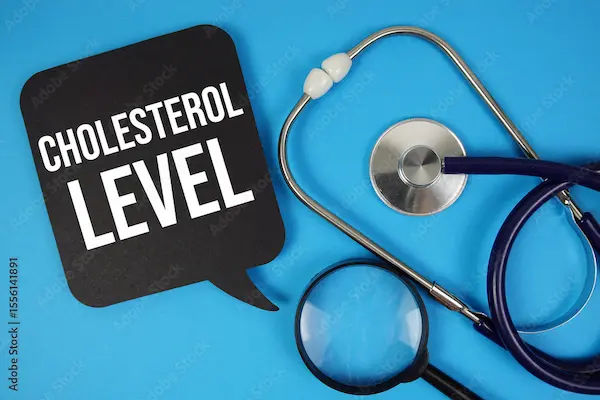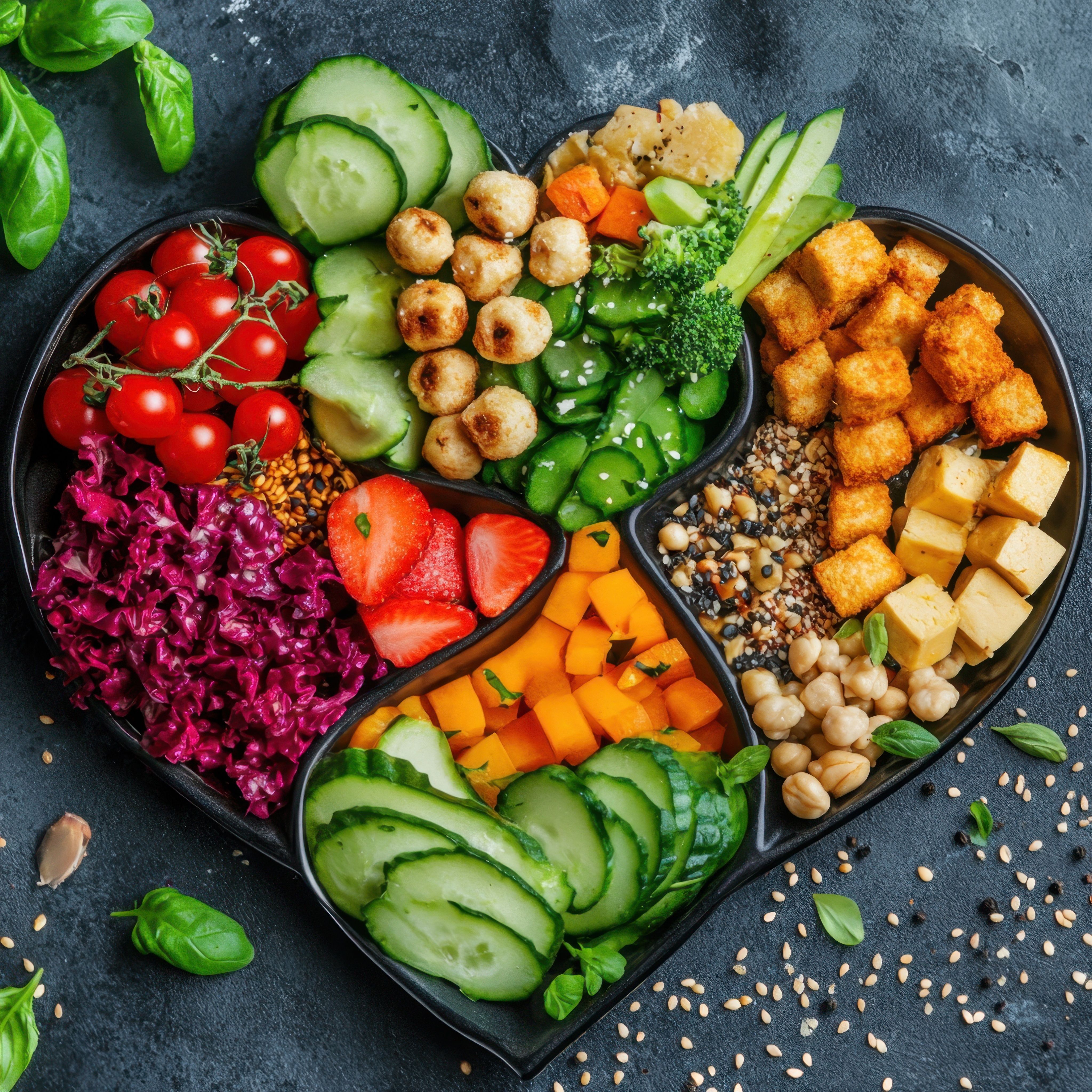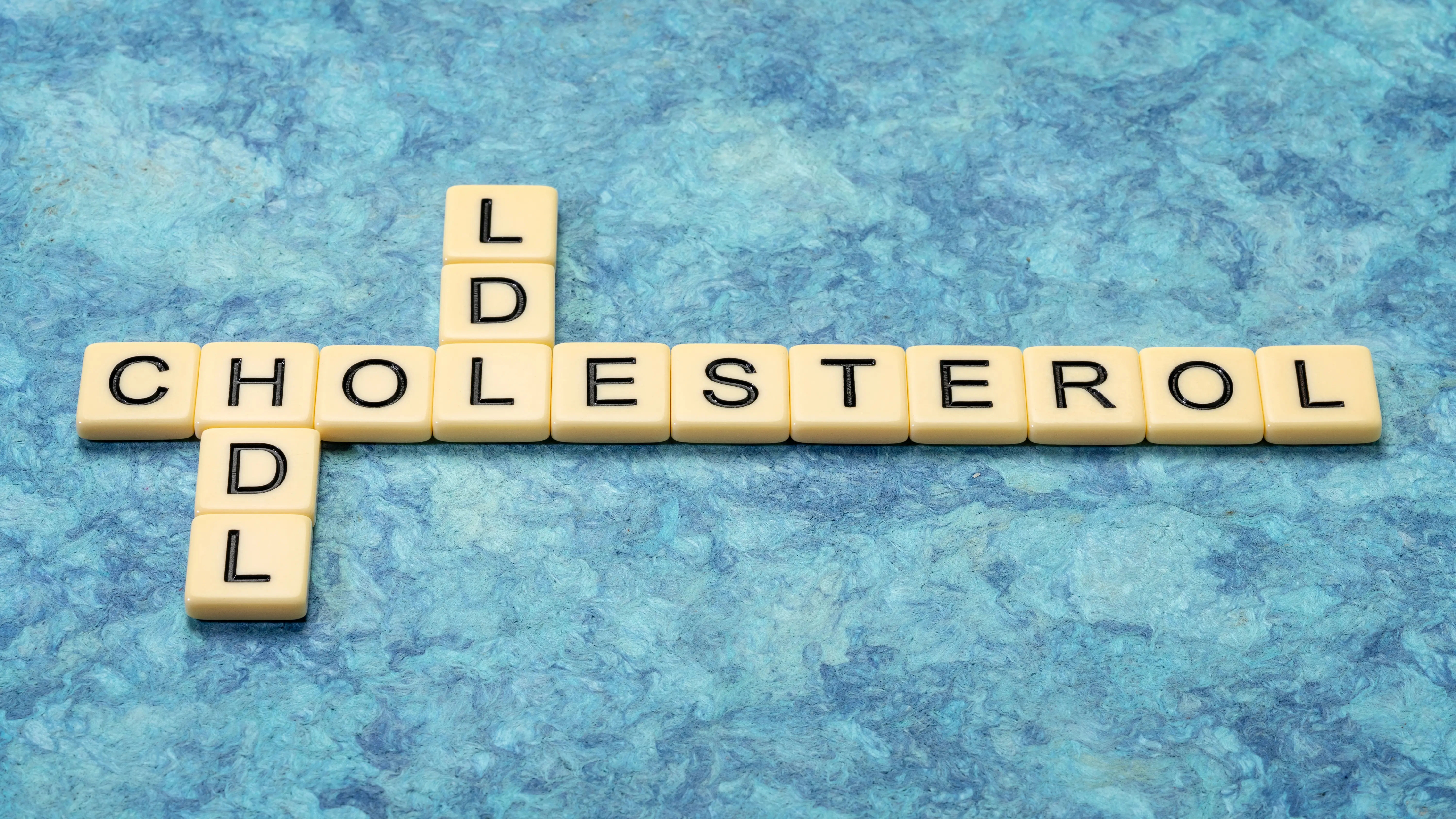Understanding Cholesterol: Your Guide to Good vs. Bad and Heart Health
Know about the cholesterol, source of cholesterol, types of cholesterol, causes and dangers of high cholesterol and what to do beyond the lifestyle changes.


Introduction
Cholesterol. It’s a word we hear all the time, often accompanied by warnings about heart attacks and stern advice from doctors. But what is it, really? Is all cholesterol bad? The truth is, cholesterol is a complex and essential substance for your body's function. The problem isn't cholesterol itself, but rather an imbalance. Understanding the difference between "good" and "bad" cholesterol is the first step toward taking control of your cardiovascular health. We’ll move beyond the basics to give you a clear, actionable plan for mastering your lipid profile.
What Is Cholesterol, Really?
At its core, cholesterol is a waxy, fat-like substance found in every cell of your body. It’s often vilified, but it's not inherently evil. In fact, your body needs it to build cells, produce vital hormones , create vitamin D, and make bile acids that help you digest fat.
The Essential Functions of Cholesterol in Your Body
Think of cholesterol as a necessary raw material. It’s a fundamental building block for your cell membranes, providing structure and flexibility. It’s also the starting ingredient your body uses to synthesise steroid hormones, which regulate everything from metabolism to inflammation to reproductive functions. Without cholesterol, your body simply couldn't perform these critical tasks.
Consult a Cardiologist for Personalised Advice
Where Does Cholesterol Come From? Liver Production vs. Dietary Intake
There’s a common misconception that the cholesterol in your food is the primary culprit. The reality is more nuanced. Your liver produces about 80% of the cholesterol in your body. The remaining 20% comes from dietary cholesterol found in animal products like meat, poultry, dairy, and eggs. However, for most people, the saturated and trans fats in their diet have a much larger impact on blood cholesterol levels than dietary cholesterol itself. These fats signal your liver to produce more cholesterol, tipping the balance.
The Two Main Types: LDL vs. HDL Cholesterol
Because cholesterol is a fat-like substance and blood is water-based, they don’t mix. To travel through your bloodstream, cholesterol is carried by tiny particles called lipoproteins. The type of lipoprotein determines whether cholesterol is "good" or "bad."
LDL (Low-Density Lipoprotein): The "Bad" Cholesterol Explained
LDL cholesterol is often labelled "bad" for a crucial reason. It transports cholesterol particles from your liver to your cells. However, when there is too much LDL in the blood, it can slowly build up on the walls of your arteries. This buildup forms hard deposits called plaque in a process known as atherosclerosis. These plaques narrow the arteries, making them less flexible and restricting blood flow. If a plaque ruptures, it can cause a blood clot that blocks an artery entirely, leading to a heart attack or stroke.
HDL (High-Density Lipoprotein): The "Good" Cholesterol Explained
HDL cholesterol is considered "good" because it acts as a scavenger in your bloodstream. It picks up excess cholesterol and carries it back to your liver, where it is broken down and removed from the body. This process is often called "reverse cholesterol transport." Higher levels of HDL are associated with a lower risk of heart disease because they help prevent cholesterol buildup in your arteries.
Triglycerides: The Third Piece of the Puzzle
A complete cholesterol test also measures triglycerides, the most common type of fat in the body. They store excess energy from your diet. High levels of triglycerides, often caused by being overweight, eating a diet high in sugar and refined carbohydrates, and smoking, can also harden arteries and increase your risk of cardiovascular problems.
How to Know Your Numbers: Getting Tested?
High cholesterol has no symptoms. You can feel perfectly healthy and still have dangerously high levels. The only way to know is through a simple blood test.
What is a Lipid Panel or Lipid Profile?
This blood test, which usually requires fasting for 9-12 hours beforehand, provides a detailed breakdown of your blood fats.
It measures:
- Total cholesterol: The overall amount of cholesterol in your blood.
- LDL cholesterol: The amount of "bad" cholesterol.
- HDL cholesterol: The amount of "good" cholesterol.
- Triglycerides: The level of this other fat in your blood.
Interpreting Your Results: Optimal, Borderline, and High Ranges
While your doctor will interpret your results based on your personal health history, general guidelines (measured in milligrams per deciliter, or mg/dL) are:
Total Cholesterol:
- Desirable: Less than 200 mg/dL
- Borderline High: 200–239 mg/dL
- High: 240 mg/dL and above
LDL ("Bad") Cholesterol:
- Optimal: Less than 100 mg/dL
- Near Optimal: 100–129 mg/dL
- Borderline High: 130–159 mg/dL
- High: 160–189 mg/dL
- Very High: 190 mg/dL and above
HDL ("Good") Cholesterol:
- Poor: Less than 40 mg/dL (for men), Less than 50 mg/dL (for women)
- Better: 50–59 mg/dL
- Best: 60 mg/dL and above (protective against heart disease)
Triglycerides:
- Normal: Less than 150 mg/dL
- Borderline High: 150–199 mg/dL
- High: 200–499 mg/dL
- Very High: 500 mg/dL and above
The Silent Risk: Causes and Dangers of High Cholesterol
Understanding what leads to high cholesterol and its potential consequences is key to motivation for change.
Controllable Risk Factors: Diet, Exercise, and Smoking
Your lifestyle choices play a massive role. A diet high in saturated fats (found in red meat, full-fat dairy) and trans fats (found in fried foods and baked goods) is a primary driver. Lack of physical activity lowers HDL ("good") cholesterol and can lead to weight gain. Smoking damages the walls of your blood vessels, making them more prone to plaque accumulation, and also lowers your HDL.
Uncontrollable Risk Factors: Age, Genetics, and Family History
Some factors are beyond your control. As you age, your risk increases. Genetics also play a part; some people have a genetic condition called familial hypercholesterolemia, which causes very high cholesterol levels from a young age. If you have a family history of early heart disease, you need to be especially vigilant.
How High Cholesterol Leads to Atherosclerosis and Heart Disease
This is the critical chain of events. Excess LDL cholesterol seeps into the inner wall of an artery. Your body sends immune cells to try to clean it up, which leads to inflammation. This mixture of cholesterol, cells, and debris forms plaque. Over the decades, this plaque narrows the coronary arteries that supply blood to your heart muscle. If a plaque ruptures, a clot forms. A clot blocking a narrowed artery is the direct cause of most heart attacks and ischemic strokes.
Taking Control: How to Lower Cholesterol Naturally
For many, lifestyle modifications are the first and most powerful line of defense against high cholesterol.
Heart-Healthy Dietary Changes: What to Eat and What to Avoid
Shift your focus from a low-cholesterol diet to a heart-healthy diet pattern.
- Reduce Unhealthy Fats: Limit red meat, processed meats, full-fat dairy, and baked goods.
- Eliminate Trans Fats: Check labels for "partially hydrogenated oils."
- Increase Soluble Fibre: This type of fibre reduces the absorption of cholesterol into your bloodstream.
- Excellent sources include oats, barley, beans, lentils, apples, and citrus fruits.
- Choose Healthy Fats: Swap saturated fats for monounsaturated and polyunsaturated fats found in olive
- oil, avocados, nuts, and fatty fish like salmon and mackerel (rich in heart-healthy omega-3 fatty acids).
The Power of Soluble Fibre and Healthy Fats
Soluble fibre acts like a sponge in your digestive tract, binding to cholesterol and removing it from your body. Meanwhile, healthy fats like those in walnuts and almonds can directly help lower LDL levels. Incorporating a handful of nuts a day or using olive oil for cooking are simple, effective swaps.
The Role of Regular Physical Activity
Exercise is a potent tool. It boosts your body's HDL ("good") cholesterol while helping to lower LDL and triglycerides. Aerobic exercise—like brisk walking, swimming, cycling, or running—for at least 30 minutes most days of the week is most effective. Even short bouts of activity add up.
Other Crucial Lifestyle Modifications: Weight Management and Quitting Smoking
Losing even 5-10% of your body weight can significantly improve your cholesterol numbers. Quitting smoking is one of the single best things you can do for your cardiovascular health. Your HDL will likely improve, and your blood pressure will drop, reducing your overall risk of heart disease.
When Lifestyle Isn't Enough: Cholesterol Medications
For some individuals, particularly those with genetic conditions or very high risk, lifestyle changes may not be sufficient to reach target levels. In these cases, medication is a vital option.
An Overview of Common Medications (Statins, etc.)
Statins are the most commonly prescribed class of drugs. They work by blocking a substance your liver needs to make cholesterol, which causes your liver to remove cholesterol from your blood. Other types of medications include cholesterol absorption inhibitors, PCSK9 inhibitors, and fibrates, which are often used in combination with statins or for people who can't tolerate them.
Who is a Candidate for Medication?
Your doctor will consider your overall risk profile—including your cholesterol numbers, age, blood pressure, and whether you smoke—to decide if you need medication. The decision is personalised; the goal is to reduce your individual risk of a future heart attack or stroke.
Conclusion
Understanding cholesterol is not about memorising complex medical jargon; it's about grasping a fundamental concept of your health. It’s the balance between the cholesterol that builds up in your arteries and the cholesterol that is cleaned out. Embracing a lifestyle centred on whole foods, consistent movement, and avoiding smoking gives you immense power to influence your trajectory.
Consult a Cardiologist for Personalised Advice
Consult a Cardiologist for Personalised Advice

Dr. Anand Ravi
General Physician
2 Years • MBBS
Bengaluru
PRESTIGE SHANTHINIKETAN - SOCIETY CLINIC, Bengaluru

Dr. Sumanta Chatterjee
Cardiologist
12 Years • MBBS,MD General Medicine,DM Cardiology
Kolkata
HealthYou Speciality Clinic & Diagnostics., Kolkata
(25+ Patients)

Dr. Syed Akram Ali
Cardiologist
14 Years • MBBS DCH DNB(PED) DNB(CARD) CONSULTANT INTERVENTOINAL CARDIOLOGIST, EUROPEAN SOCIETY OF CARDIOLOGY CERTIFIED HEART FAILURE SPECIALIST
Hyderabad
AYMAN POLYCLINIC, Hyderabad

Dr. Sumanjita Bora
Cardiologist
9 Years • MBBS, PGDCC
Bengaluru
Apollo Clinic, Sarjapur Road, Bengaluru
Dr. Sibashankar Kar
Cardiologist
10 Years • MBBS, DNB
Bhubaneswar
Hi-Tech Medical College & Hospital, Bhubaneswar
Consult a Cardiologist for Personalised Advice

Dr. Anand Ravi
General Physician
2 Years • MBBS
Bengaluru
PRESTIGE SHANTHINIKETAN - SOCIETY CLINIC, Bengaluru

Dr. Sumanta Chatterjee
Cardiologist
12 Years • MBBS,MD General Medicine,DM Cardiology
Kolkata
HealthYou Speciality Clinic & Diagnostics., Kolkata
(25+ Patients)

Dr. Syed Akram Ali
Cardiologist
14 Years • MBBS DCH DNB(PED) DNB(CARD) CONSULTANT INTERVENTOINAL CARDIOLOGIST, EUROPEAN SOCIETY OF CARDIOLOGY CERTIFIED HEART FAILURE SPECIALIST
Hyderabad
AYMAN POLYCLINIC, Hyderabad

Dr. Sumanjita Bora
Cardiologist
9 Years • MBBS, PGDCC
Bengaluru
Apollo Clinic, Sarjapur Road, Bengaluru
Dr. Sibashankar Kar
Cardiologist
10 Years • MBBS, DNB
Bhubaneswar
Hi-Tech Medical College & Hospital, Bhubaneswar
More articles from Cholesterol
Frequently Asked Questions
Can you have high cholesterol and be fit and thin?
Absolutely. While weight is a factor, genetics plays a huge role. People with familial hypercholesterolemia or other genetic predispositions can have high cholesterol regardless of their diet or fitness level. This is why regular screening is important for everyone.
What are the best foods to eat to lower cholesterol quickly?
Focus on foods high in soluble fibre (oats, beans, apples) and healthy unsaturated fats like avocados, olive oil, nuts. Fatty fish like salmon, rich in omega-3s, are also excellent choices. There is no instant fix, but consistent dietary changes yield significant results.
Are eggs bad for your cholesterol levels?
For most healthy people, moderate egg consumption of up to one egg per day. It does not significantly raise heart disease risk. The cholesterol in eggs has a much milder effect on blood cholesterol than the saturated and trans fats in your diet. Focus more on limiting processed meats and fried foods.
How often should I get my cholesterol checked?
Adults aged 20 or older should have a cholesterol test every 4 to 6 years if they are at low risk. Those with risk factors (family history, high blood pressure, diabetes) or already-high levels may need it checked more frequently, as recommended by their doctor.
What is a common misconception about how to lower LDL cholesterol naturally?
A big misconception is that simply avoiding high-cholesterol foods is enough. A more effective strategy is to reduce saturated and trans fats while simultaneously adding soluble fibre to your diet, which actively helps remove cholesterol from your body.



